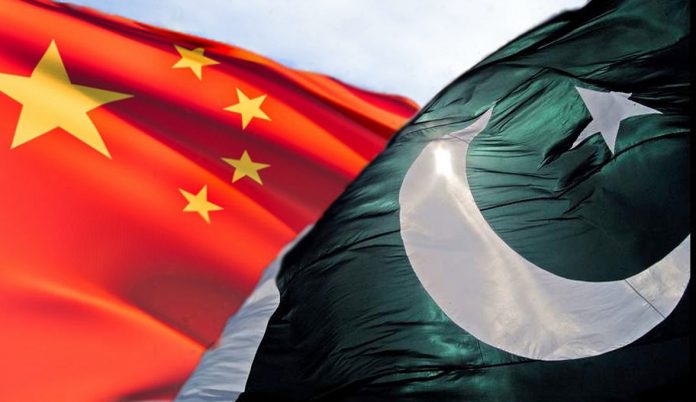LAHORE: China in an attempt to bolster its regional influence at Washington’s expense has increased it’s diplomatic, economic and strategic ties with Pakistan, according to a report published by Global Risk Insights.
China and Pakistan have recently taken a number of steps, to increase bilateral cooperation. In February this year, Beijing in light of Pakistan’s diminishing foreign reserves offered Pakistan a $500 million loan, through the Industrial and Commercial Bank of China. Similarly, the State Bank of Pakistan (SBP) replaced the US dollar with Chinese Yuan for all bilateral and investment activities, which comes as a huge setback for Washington.
China’s One Belt One Road (OBOR) project which spans across 60 countries, is expected to connect China with the wider Eurasian economy. China-Pakistan Economic Corridor (CPEC) is one link of this project in which China has invested billions of dollars. Pakistan provides China with direct access to the Persian Gulf and South Asia, which Beijing considers as pivotal arteries for maritime trade and the transit of energy supplies, stated the report. Resultantly, China has invested an built a port in Gawadar, which is strategically located near the oil-rich Persian Gulf and the strategic Strait of Hormuz, reducing China’s dependency on the vulnerable sea route through the Strait of Malacca.
China is extremely dependent on fossil fuels and was the largest importer of crude oil in 2017. Its attempts to acquire a military base in the Jiwani peninsula is an attempt to expand its naval power in the region, especially along the routes connecting China to the oil sources in the Persian Gulf. Recently, China has acquired a naval base in Djibouti and its presence in Gawadar is also partially aimed at enhancing its naval power.
Similarly, over the decades, China has been a crucial military partner of Pakistan. It provided Pakistan with much-needed hardware and technology to accelerate its nuclear and ballistic programme in the 1980’s and 1990’s and has been Pakistan’s key partner against India’s military aggression.
“Currently, 30 per cent of China’s total arms exports are to Pakistan and both the countries have established profitable military procurement contracts, including the production of 20 CH3 Unmanned Combat Aerial Vehicles developed by China Aerospace Science and Technology Corporation, whose contribution has significantly boosted Pakistan’s unmanned aerial military program,” said the report.
Moreover, the spread of radical separatist movements such as the East Turkestan Islamic Movement, that staged several terrorist attacks in the Xinjiang Autonomous Region and has bases along the Sino-Pakistan border, has increased bilateral cooperation between the two sides to curb the menace of terrorism.
On the other hand, Pakistan-US relations have faced a recent deterioration with the Trump administration taking a hardline stand on Pakistan, which has further encouraged Pakistan to increase its dependence on China. If the US does not change its current policies, more countries are expected to follow Pakistan’s footsteps, the report concluded.
























